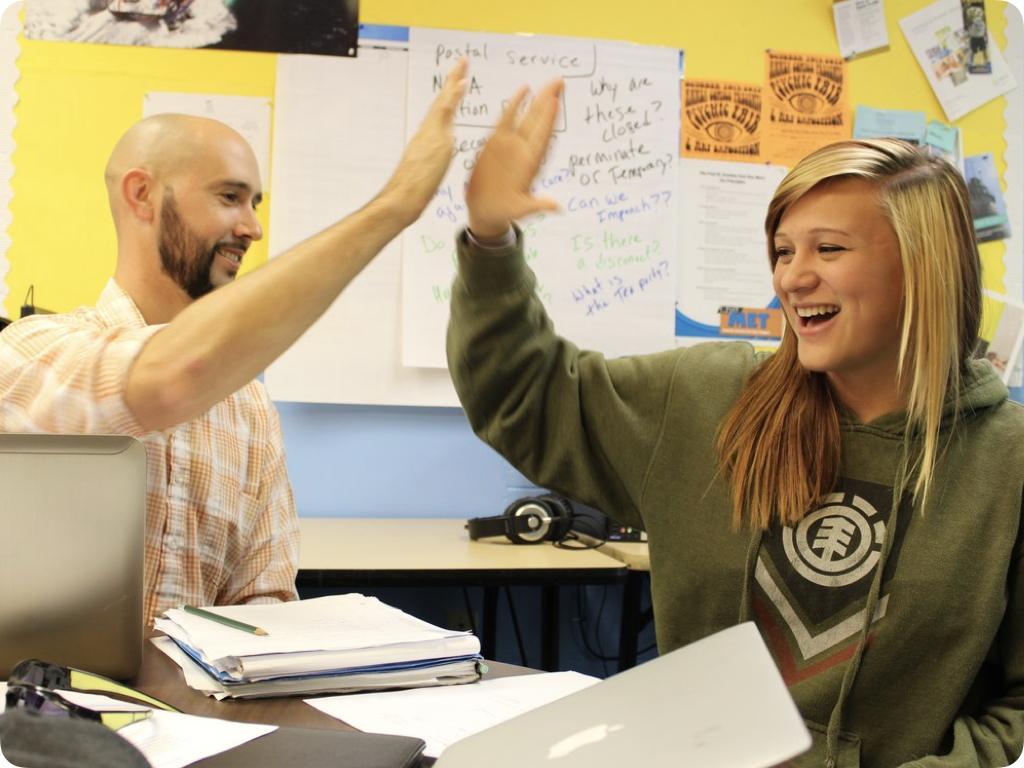Advisory
The advisory structure is the core organizational and relational structure of the Met. It is the heart and soul of the school and is often described as the “home” and “second family” by students. Met advisories range from 14 to 18 students assigned to one advisor. Most Met students stay with the same advisor for the four years of high school.
The advisor’s role is to manage the student’s internships and individual, personalized Learning Plans. To do this, the advisor must get to know each student and his or her family well (this includes home visits and one-on-one meetings with each student).
Though certified in one area, the advisor does not “teach” his or her subject area; rather s/he draws upon many disciplines to meet the needs of each student, their projects, and
the advisory activities. Ultimately, the success of the student is the responsibility of the advisor.
The advisor also organizes the “advisory time” (times during the day when the group meets) in the morning and the afternoon to meet the needs of the students. S/he facilitates the group activities that are designed to expose students to new ideas and concepts, provide academic learning opportunities, create a group identity and group process, and build a sense of belonging and trust in school and the educational process.
The advisor’s role is to manage the student’s internships and individual, personalized Learning Plans. To do this, the advisor must get to know each student and his or her family well (this includes home visits and one-on-one meetings with each student).
Though certified in one area, the advisor does not “teach” his or her subject area; rather s/he draws upon many disciplines to meet the needs of each student, their projects, and
the advisory activities. Ultimately, the success of the student is the responsibility of the advisor.
The advisor also organizes the “advisory time” (times during the day when the group meets) in the morning and the afternoon to meet the needs of the students. S/he facilitates the group activities that are designed to expose students to new ideas and concepts, provide academic learning opportunities, create a group identity and group process, and build a sense of belonging and trust in school and the educational process.
